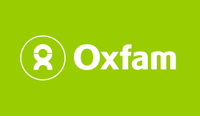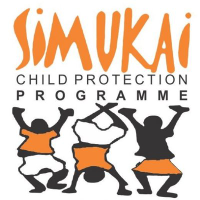Baseline Assessment for the project, “Integrated Emergency Response for El Niño Drought Affected Communities in Zimbabwe,
Job Description
Oxfam is a global movement of people who are fighting inequality to end poverty and injustice. Across regions, from the local to the global, we work with people to bring change that lasts.
OVERVIEW
Title and brief description of the assignment
Baseline Assessment for the project, “Integrated Emergency Response for El Niño Drought Affected Communities in Zimbabwe,
Assignment location
Zimbabwe: Mberengwa District, Midlands Province
Contract start date
05 May 2025
How to apply
Interested candidates are invited to submit:
1) A proposal describing how the evaluation will be conducted (including a budget in a separate file)
2) CV (s)
3) A written example of an evaluation already carried out
See section ‘8. Application Process’ for further details
Application deadline
25 April 2025
Specific considerations
PURPOSE OF THIS CONSULTANCY
The direct motive for this procurement for consultancy services is to generate baseline data and information on the current situation in the targeted communities, informing the implementation of the project. The study will obtain baseline information, establish benchmarks for the eventual monitoring of progress. The outputs of the consultancy will support the measurement of change over time, inform program implementation, and contribute to learning and accountability. The assessment will also include a gender and protection lens, ensuring that the project remains responsive to the diverse needs and priorities of affected communities.
BACKGROUND AND CONTEXT
Southern Africa experienced one of the most severe droughts in decades, exacerbated by El Niño and the lowest mid-season rainfall in 40 years. Zimbabwe, like other southern African countries such as Zambia, Malawi, and Mozambique were among the hardest-hit countries, with over 5 million people in urgent need of humanitarian assistance. The drought also led to a delayed start of the 2024/25 rainfall seasons, thereby affecting food and water security, increasing protection risks—especially for women and girls—and overwhelming public health systems. Although rainfall pattens have improved in the recent months, the communities are still feeling the effects of the El Nino induced drought. Recent assessments indicate that in Zimbabwe’s Mberengwa District, more than half the population is expected to face IPC 3 conditions during the peak hunger period (January to March 2025). The government of Zimbabwe has recently proclaimed that due to the delayed farming season, vulnerable communities still need food assistance beyond March which traditionally marks the end of the peak hunger period.
In response to the effects of this El Nino, Oxfam in Southern Africa, together with Oxfam Canada with funding from Global Affairs Canada (GAC) is currently implementing an integrated El Nino response in Mberengwa district. Oxfam’s work in Southern Africa is guided by its Gender in Emergencies Strategy (2022–2025), Gender Justice Framework, and Global Strategic Framework (2020–2030), which prioritises gender justice as a key driver of transformative systems change. This project adopts a feminist, locally led approach to humanitarian action that centres on the rights, needs, and leadership of women, girls, and marginalised groups in crisis-affected communities.
The project targets 54,286 individuals (16,937 women, 11,291 girls, 15,635 men, 10,423 boys) in four selected high need wards in Mberengwa district.
The intervention is structured around three core pillars:
Water, Sanitation and Hygiene (WASH):
The project will rehabilitate critical WASH infrastructure—including boreholes, piped water schemes, and latrines—while promoting safe hygiene practices and menstrual health management. These actions aim to restore access to safe water and sanitation for 31,077 households affected by drought. WASH Committees, with a minimum of 60% female representation, will be established and trained to support long-term sustainability and community ownership.
The project will also address solid waste management issues at health facilities, business centers, schools and in the community.
Food Security and Livelihoods:
Through food hampers, the project supports 9,300 vulnerable people selected from the Food Deficit and Mitigation Strategy database. Beneficiary selection will prioritise households in IPC Phase 3 and 4 conditions, informed by nutrition screenings and participatory, gender-sensitive targeting.
Protection and SGBV Prevention/Response:
The project integrates SGBV risk mitigation and response across all activities. This includes establishing 39 safe spaces, training 54 community-based protection focal points, and creating or strengthening 40 referral pathways. Community awareness campaigns will be launched, and dignity kits will be distributed in schools and healthcare facilities to support menstrual health and protection needs. Protection committees, volunteers, and local leaders will receive training on safeguarding, referral mechanisms, and survivor-centred support.
This integrated response is aligned with key global standards, including the CERF Lifesaving Criteria, the IASC Guidelines for Integrating GBV in Humanitarian Action, and the country-specific Humanitarian Response Plans.
Ultimately, the intervention aims to reduce suffering, uphold dignity, and save lives among the most vulnerable communities affected by drought. The baseline assessment will play a crucial role in informing implementation, tracking progress against outcomes, and supporting real-time learning and adaptive management throughout the project lifecycle.
Duties and Responsibilities
SCOPE OF WORK
Oxfam is recruiting a national consultant to co-lead in the design and implementation of the baseline study in Mberengwa for the Integrated El Nino response project. The consultant will work alongside the Baseline survey Working Group (with members from Oxfam in Southern Africa and Oxfam Canada) in carrying out the assignment. The role of the consultant is to work collaboratively with Oxfam personnel throughout the baseline survey process, and the scope includes study design, theory of change, formulation of data collection tools and sampling strategies as well as leading in all aspects of data collection, analysis and report writing.
Scope of work summary:
1. Study design
2. Review the existing Theory of Change (TOC)
3. Design a data collection and analysis plan
4. Data collection and analysis including recruiting and training of data collectors.
5. Produce a detailed baseline report
6. Consultant will validate the results through sense making process.
EXPECTED OUTPUTS
The specific study objective includes the following:
1. Establish baseline values for the key outcome and output indicators as defined in the project’s Performance Measurement Framework (PMF), across the three pillars:
a) WASH (e.g., access to safe drinking water, sanitation, solid waste management , hygiene practices and water and sanitation coverage )
b) Food Security (e.g., household food consumption, dietary diversity and coping strategies as well as identifying gaps in terms of extension and advisory services)
2. Protection and SGBV (e.g., awareness of services, safety perceptions, access to referral systems and availability of SGBV support services.
3. Establish a baseline for accountability and community feedback mechanisms, including community awareness of existing channels and preferences for communication and reporting
4. Identify potential additional interventions which may be required to strengthen
Specific outputs
The consultant is expected to deliver the following outputs:
1. This baseline study will have key deliverables summarized below:
• A study proposal detailing out the technical and financial aspect for the baseline.
• An inception report detailing out the understanding of assignment, study, methodology, comprehensive data gathering tools and guidelines as well as a detailed Workplan.
• A draft baseline report
• Final baseline report (both soft and hard copies)
• A clean dataset(s), transcriptions, and other study materials
The report should be well-structured with a standard cover sheet, Table of Contents, Acknowledgements, Acronyms and Abbreviations, Executive summary; Introduction inclusive of study purpose, objectives and scope; study methodology and limitations; study findings, conclusions and recommendations, references and the appendix with data collection instruments, clean datasets. List of key informants, updated Indicator Tracking Table, and ToR for the study.
All written documents are to be submitted in English using Microsoft Word. All primary data collected, and analysis conducted for the purpose of the baseline will remain the property of Oxfam and must be submitted electronically in a clear and comprehensible format, Microsoft Excel and Word.
METHODOLOGY
The consultant will work together with Oxfam to come up with the most appropriate methodology to undertake the study. Nonetheless, the expected methodology for the baseline study should include both qualitative and quantitative approaches in generation of primary data that will inform the analysis. The consultant is expected to articulate the detailed study approaches and research design that will be applied during the study. The methods should be sensitive to the target population (unit of analysis), and robust enough to provide adequate responses to the stated research objectives. Overall, the methodology section should cover details of study design and approaches, sampling, sample size determination, data collection methods/instruments, data analysis techniques, plan for dissemination of study findings and a statement on quality assurance and ethical considerations during the study. The expected approach should be described in enough detail to enable any other researcher interested in the same study to apply the same methodology.
Qualifications and Experience
PROFILE REQUIREMENTS
The company/ individual(s) should have the following competencies:
• Advanced degree in a relevant field of work like Humanitarian response, development studies, Social Sciences, human rights, project Management, Gender Studies, Monitoring and evaluation, etc.
• Understanding of the assignment and quality research proposal, including a work plan and study team.
• Demonstrable expertise and knowledge of projects in the fields of Food Security, WASH, Protection, and gender in emergency situations, as well as Humanitarian (Cash Programming), with similar programs being an added advantage.
• Experience and skills in developing and conducting various types of research and baseline studies, utilizing both qualitative and quantitative approaches, as well as statistical data analysis.
• Experience in data collection and analysis using participatory methodologies.
• The consultant team is expected to demonstrate excellent communication skills, both verbal and written, in English.
• Applicants will have experience of working with multicultural teams.
• Excellent analytical and writing skills.
How to Apply
Similar Listings

Terms Of Reference
Oxfam — Harare

Terms Of Reference
Oxfam — Harare

CALL FOR EXPRESSION OF INTEREST FOR CONSULTANCY SERVICES FOR THE DESIGN AND IMPLEMENTATION OF A CAPACITY DEVELOPMENT PROGRAM FOR SIMUKAI CHILD PROTECTION PROGRAMME
Simukai Child Protection Program — Harare

Location: Harare
Company: Oxfam
Expiry Date: 2025-04-25 00:00:00
